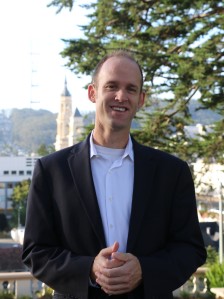 Barack Obama won the re-election for a second term as the President of the United States of America. Obama won 303 electoral votes against Governor Mitt Romney’s 206 votes, according to the Huffington Post.
Barack Obama won the re-election for a second term as the President of the United States of America. Obama won 303 electoral votes against Governor Mitt Romney’s 206 votes, according to the Huffington Post.
Hours before the announcement of President Barack Obama’s election victory, it seemed many USF students already knew who would win the presidency. “Obama,” said freshman Adam Hernandez. “Obama,” said sophomore Victor Valle. “Hopefully, tonight is not just an election night, but a re-election night,” said Meagan Cuthill, a junior politics major who voted for the first time in this election. “Obama,” agreed freshman Cody Vassar, even though he is an open Republican. “I voted Romney, but I’ll run away if he wins, so I don’t get shot,” he joked. In Tuesday night’s crowd of Obama supporters, Vassar felt like a minority, he said. “But we’re a democracy, so I support everyone that voted,” he concluded.
With the high number of “I voted” stickers worn proudly by voters of the USF community at the event, Vassar had many people to support. Large groups of students gathered in the University Center’s first floor for the election watch party, standing or sitting in chairs and on the floor to keep an eye on the changing ballot numbers between Obama and Governor Mitt Romney. “I’ve never seen so many people coming together and being involved,” said senior Adriana Duckworth. Junior Caroline Christ agreed. “Tonight and the Giant’s game are the only time I’ve seen people come together like this!”
It appears the viewing party has come a long way from its small, humble beginnings.“We’ve had three presidential election parties so far. It has gone from just twenty political junkies eating a pizza or two, to this,” said politics professor Patrick Murphy. “It’s almost a sports bar, but for political nerds,” he said.
Take into consideration the cheering and hollering each time a state’s final vote is cast, one might actually think they’re at a sports bar. Why are people so active this election? Junior media studies student, Hayley Zaremba, attributed the interest to the Republican candidate. “I’m surprised so many people came out, but I think just the prospect of having Romney as president is scary enough to get people out of their down rooms,” she said. Others connect the interest to the group environment. “I just wanted to watch the results on not [sic] my computer. It’s a pretty exciting environment,” said sophomore Jazlyn Taylor, an international studies student.
In the midst of enthusiasm for the election, which was the first voting experience for many students, some admittedly came to the watch party for the free food. “I came for the gathering, to feel more engaged…and for the food,” said Vassar. “The food is definitely a plus, but I also hope to see Obama win tonight,” said Alex Bacon, a sophomore English major.
Whether people were more excited for results or free food is a toss-up, but the election no longer is — Obama was voted for a second term as the U.S. president. “Obama won the presidency, everyone praise God and take your clothes off!” shouted an unidentified student, running out the door of the University Center.
The election watch party was hosted by the Leo T. McCarthy Center for Public Service and the Common Good.




